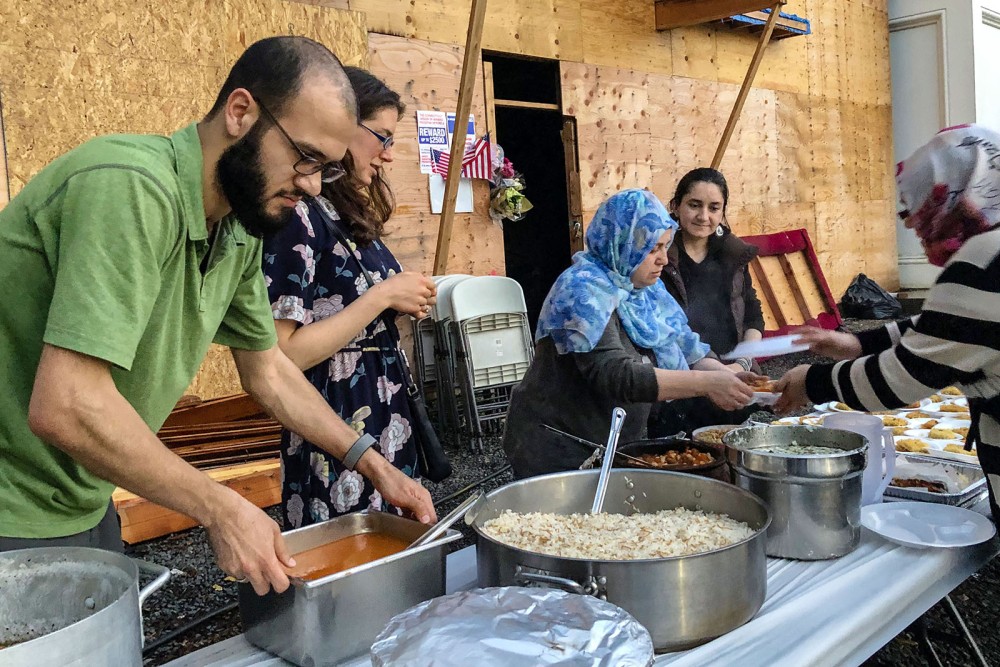New Haven mosque struggles to resume Ramadan rituals after arson attack
Diyanet Mosque was set ablaze in broad daylight, destroying much of the ground floor. Attendance has been low at its iftar meals.

A week after an arson attack left the Diyanet Mosque of New Haven uninhabitable, a few dozen members gathered in front of the building for the Ramadan ritual of a community iftar, or the breaking of the day’s fast.
Seated around two long rows of folding tables, men, women, and children broke their fast with a traditional Turkish meal of bean stew, rice, and yogurt.
“I feel like I can’t look behind me,” said Hulya Elevli, 49, facing trailers in the parking lot so as not to look at the damage. “Normally we have 200 people every night at our iftars. . . . Our people did not come today.”





